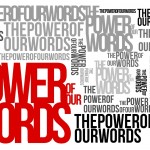I love Shutterfly.com.
I live in a very rural community and therefore both really love and really rely upon online ordering for just about everything. When I found out that you could order groceries online, it was miraculous.
I am not a huge fan of shopping to begin with and once I found myself living in a rural part of the country as a result of my job, managing my life online, the anonymity and rapidity of service seemed the logical solution and immensely appealing.
So, it was a bit of a surprise when last week Shutterfly sent me an apology – a personal apology. Not because I had an erroneous order of photographs, note cards or address labels. Not because I had a missing set of personalized gifts or family calendar unsent. Not because a gift didn’t arrive in time for the Mother’s Day holiday that was on the horizon.
Shutterfly sent me an apology because the week prior they had congratulated me on becoming a mother! Great news, one might expect! How thoughtful! It was exciting! Except for the fact that I don’t have (but am working extremely hard to have) my own child/ren.
As I deleted their congratulatory message, I had the fleeting, hopeful thought that (as anyone who has grappled with infertility or has had multiple miscarriages knows full well) maybe Shutterfly knows something I don’t? Was this a sign? Did last month’s careful planning and positions actually work?
I wondered and I tried hard to both read into and then not read into the message. In the end, I deleted it anyway, grumbling to myself about insensitive-super-cheerful marketing strategists and their need for better training about reproductive struggles.
So, when a week later, I received the following and Shutterfly’s prescience was challenged, I found myself thinking, again, about the kind of language we use to talk about making motherhood and the missteps we often experience along the way.
| Rebecca, Please accept our most sincere apologies. We mistakenly sent an email that was intended only for new parents who recently made baby-related purchases at Shutterfly. We’re truly sorry if you received this email in error. We realize this is a very sensitive issue and we did not mean to upset you in any way. |
| We care about our customers above all else and have taken measures to ensure this will not happen again. If you have any questions or concerns, please reach out to us at customerservice@cs.shutterfly.com and we’ll get back to you.Sincerely,John Boris, Chief Marketing Officer, Shutterfly, Inc. |
I wanted to thank John Boris. But I also wanted to use his corporate apology to focus on the lived-experience of making motherhood and the meaning of how we talk about it. I wanted to tell him about several events in my own life where the language that people have used about this subject been particularly poignant, equally as problematic. And to assure him that he and his company were not alone in their linguistic blundering about the meaning of motherhood.
In my professional work, in southern Africa, I study the meaning of infertility – I’ve been told that women who do not have children are particularly suspect and jealous. Often, to be considered a full and responsible adult, one must have children of one’s own.
The same has been true in a contemporary academic setting among people who, despite knowing about assisted reproductive technologies, have taken a similar stance.
Several years ago a male colleague, with an advanced graduate degree, sent an email message to female faculty in celebration of Mother’s Day, urging us to “celebrate those all those who do so much as mothers.” To those who “were not mothers” we were thanked for “mothering our students and helping nurture their success.”
While I have no doubt that what we do as academics is akin to nurturing intellectual curiosity and growth, are we really ‘mothering’? Furthermore, I could only wonder about the impact of such a statement if that message was repeated a month later to all the men in the department thanking them for “fathering our students”….not quite the same sentiment…the language we use really matters.
Which brings me to the language I use now. I am not a biological mother. Yet in the last year I’ve married and, within the span of a few moments, I went from being a single, child-free woman (with a relatively simple kinship chart tucked in my back pocket) to having two amazing step-sons.
I now get to talk about their talents, successes and characteristics in ways that can be wholly uncensored and without embarrassment. I have wholly adopted that ‘mother language!’ two grand-children and a spouse.
Now, I am a step-mother, a mother-in-law twice over, and a grandmother, too. My husband and I have both been married before – me, without children. I have no doubt that things were less complicated and easy with our divorce without children. Again, like Shutterfly, there are some lessons to be learned, I suppose, when we pay attention to the language and phrases we use!
I began my work on infertility long before I struggled with it myself. I researched it abroad and then studied dual earning couples in the US who had or were trying to have a second child. But, now I am in danger of doing a “me-search” – research on topics that are far too intimate, familiar and personally relevant.
We have had three miscarriages (two confirmed and one that I just kept to myself – people who have experienced ‘recurrent miscarriage’ or have ‘unexplained infertility’ as your ICD-9 code, you know what I’m talking about here and why the language we have to talk about miscarriage is so sadly and woefully inadequate).
We went through a failed cycle of IVF and if I can convince my husband and save enough money, donor eggs and a cycle may just be on the horizon. What is strange to me is that when I got the email apology from Shutterfly, I wondered, ‘how do they know all that?’ Did they know how difficult the pursuit of motherhood has been in our lives? How did John Boris know that it was all so sensitive and difficult, and that I wanted to talk…no, in this case, write about it?
I wonder if they have the words to congratulate me on the various kinds of “mother” I am now and hope to be in the future? I look forward to hearing from them, again.
 Rebecca L. Upton, Ph.D., 43, is Associate Professor of Sociology and Anthropology at DePauw University. She has held the Edward Myers Dolan endowed professorship for the past five years and is author of numerous articles about fertility, family and reproductive health in the US and southern Africa. She is currently working on her MPH degree at Emory University and is focusing her thesis on the meaning of miscarriage in the US. Her non-work life is incredibly full between blended families, an old house in Indiana that is ‘full of character,’ a cottage in Maine that is its close rival, a marriage to her best-friend, a chocolate Labrador called Mokolodi and the daily hope that one more person will someday call her their mother.
Rebecca L. Upton, Ph.D., 43, is Associate Professor of Sociology and Anthropology at DePauw University. She has held the Edward Myers Dolan endowed professorship for the past five years and is author of numerous articles about fertility, family and reproductive health in the US and southern Africa. She is currently working on her MPH degree at Emory University and is focusing her thesis on the meaning of miscarriage in the US. Her non-work life is incredibly full between blended families, an old house in Indiana that is ‘full of character,’ a cottage in Maine that is its close rival, a marriage to her best-friend, a chocolate Labrador called Mokolodi and the daily hope that one more person will someday call her their mother.

